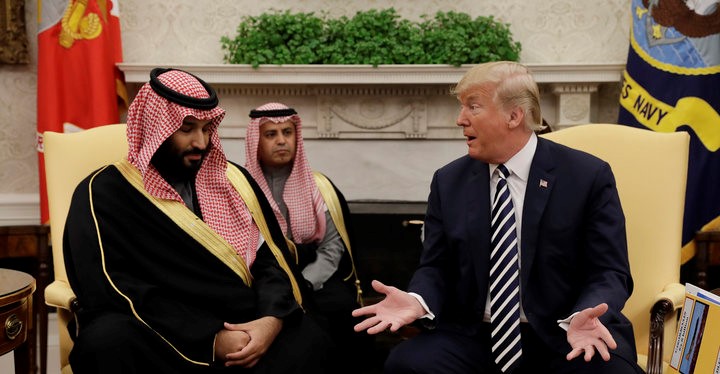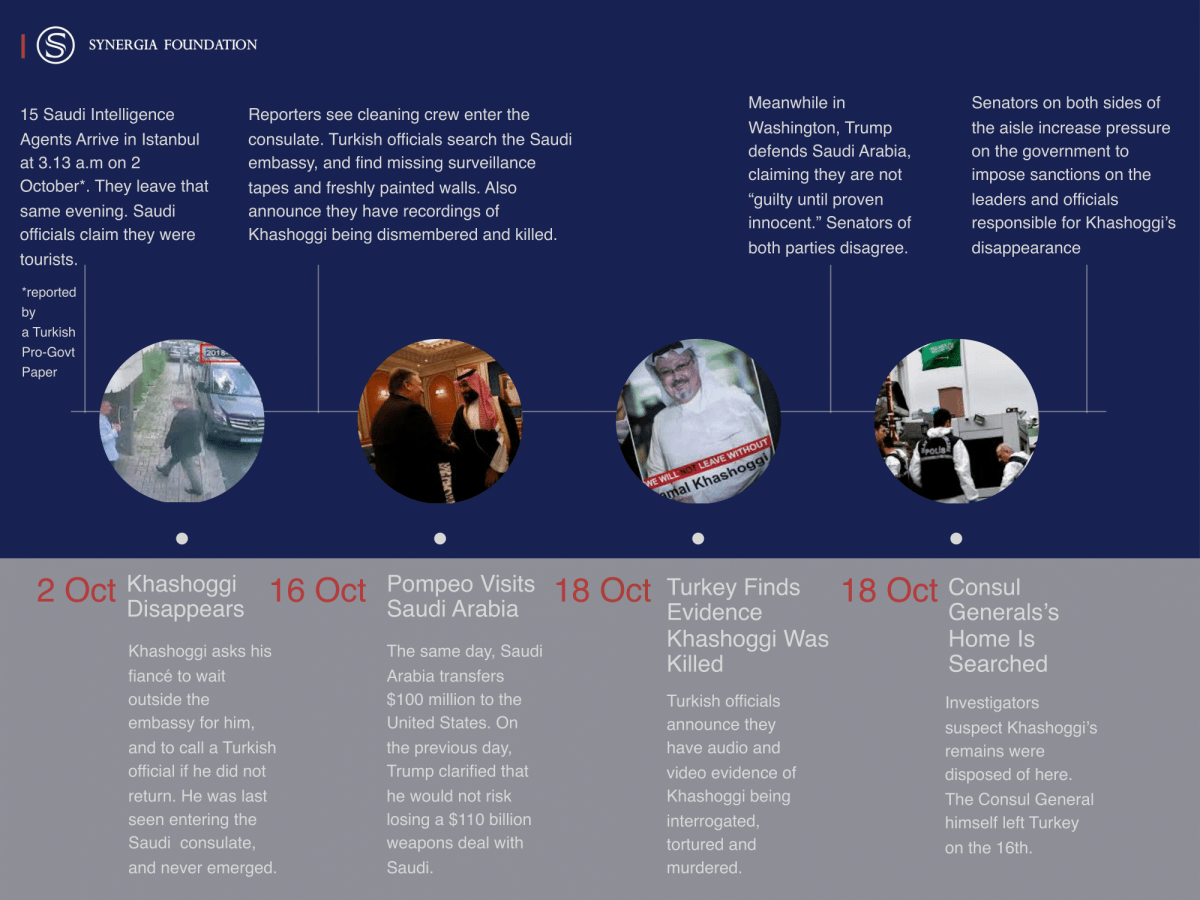Justice for Jamal?
October 18, 2018 | Expert Insights

Incentives offered by Prince MBS may have persuaded Turkish and American heads of state to support Saudi Arabia’s claims of innocence in the case of journalist Jamal Khashoggi, who was allegedly killed in the Saudi consulate in Turkey. Congressional leaders who are pursuing justice could be fighting a losing battle.
Background
Jamal Khashoggi is one of the Arab world’s most prominent journalists and commentators. He has been living in self-imposed exile in the United States for the past year. Mr Khashoggi was part of the Saudi elite, close to members of the royal family, and former adviser to Turki al-Faisal, a Saudi intelligence chief who became Saudi Arabia’s ambassador to Britain and America. Khashoggi was a critic of the crown prince, Muhammad bin Salman. He authored a regular column for the Washington Post and was in the inner circle of countless diplomats and journalists. For over a year he used his influence to criticise growing repression in Saudi Arabia and to urge an end to the war in Yemen. On 2 October, he disappeared in the Saudi Arabian Consulate in Istanbul. In the two weeks since he disappeared, Turkish officials have searched the Saudi embassy, and the United States has issued a versatile series of statements, from threatening severe punishment if Khashoggi was killed in the consulate, to speculating that “rogue killers” could be responsible.
The crown prince has been known for reforms he has pushed to make Saudi Arabia appear more “stable and progressive” to draw investors into the Saudi tech industry. He has plans to reorient the Saudi economy away from oil and towards technology.

Analysis
On 16 October, US Secretary of State Mike Pompeo met with the top leaders of Saudi Arabia and said they "strongly denied" any knowledge of what happened to missing journalist Jamal Khashoggi inside the Saudi consulate in Istanbul. In Pompeo’s words, "we had direct and candid conversations. I emphasized the importance of conducting a thorough, transparent, and timely investigation, and the Saudi leadership pledged to deliver precisely on that.” On the same day as Pompeo arrived in Riyadh, the United States received a payment of $100 million from Saudi Arabia, ostensibly to support U.S. stabilization efforts in northeastern Syria. The Saudi payment to support Syria is a cornerstone of Trump’s “America First” strategy, which calls on regional countries to take on a greater burden for security challenges, including Syria. This would help the United States use the $230 million earmarked to help Syria for other purposes.
Western diplomats speculate that Saudi will compensate Turkey for its willingness to launch a joint investigation on Khashoggi’s disappearance. This could come in the form of large-scale debt relief, strategic buyouts or other arrangements that could help Turkey’s crumbling economy.
The Turkish government has told U.S. officials that it has audio and video recordings that prove Washington Post columnist Jamal Khashoggi was killed inside the Saudi Consulate in Istanbul this month. The recordings show that a Saudi security team detained Khashoggi in the consulate after he walked in on 2 Oct, then killed him and dismembered his body, U.S and Turkish officials said. They added that in audio recordings, Saudi security can be heard interrogating, torturing and then murdering Khashoggi.
On 17 October, Pompeo met with President Recep Tayyip Erdogan, who "made clear that the Saudis had cooperated" with Turkey's investigation. Pompeo said that he and Erdogan also spoke about Pastor Andrew Brunson, whom Turkey recently released from custody after about two years. The U.S. had imposed sanctions on Turkey over Brunson's detention. Pompeo said he would shortly have a decision on whether certain sanctions on Turkey would be lifted.
Meanwhile, in Washington, Trump spoke about the close business and strategic relationship between Saudi Arabia and the U.S. He said the U.S had requested access to any audio or video evidence from Turkey's investigation "if it exists”.
The rest of Congress seems unwilling to be so charitable. Members of Trump’s Republican party have spoken strongly against this conciliatory approach: “I don't care how much money it is,” Florida Republican Senator Marco Rubio said on Tuesday. “There isn't enough money in the world to purchase back our credibility on human rights and the way nations should conduct themselves.” South Carolina Republican Senator Lindsey Graham, usually a vocal defender of Saudi Arabia said he would use his position on the Foreign Relations Committee to sanction them. Lawmakers from both sides of the aisle invoked the Global Magnitsky Act, giving the president 120 days to make a decision on imposing sanctions on Saudi Arabia.
Assessment
Our assessment is that President Trump, who will play a crucial role in deciding how investigations and possible sanctions play out, will face tremendous pressure from both the Saudis as well as the United States Senate. The Saudi Arabian government has greater leverage, in the form of deals worth hundreds of millions of dollars that will be contingent on American support on the Khashoggi issue. Saudi Arabia also has a greater interest in drawing the president’s support, and we expect they will eventually succeed at muting any disquiet. However, it will be difficult to completely hush an event of this magnitude and this could be damaging to the Crown Prince’s efforts to showcase the kingdom as a stable, progressive investment destination. We believe if the Democrats win November’s mid-term elections and gain control of the Senate, they would be in a position to pressure Trump into sanctioning Saudi by blocking legislation on his other pet projects.








Comments